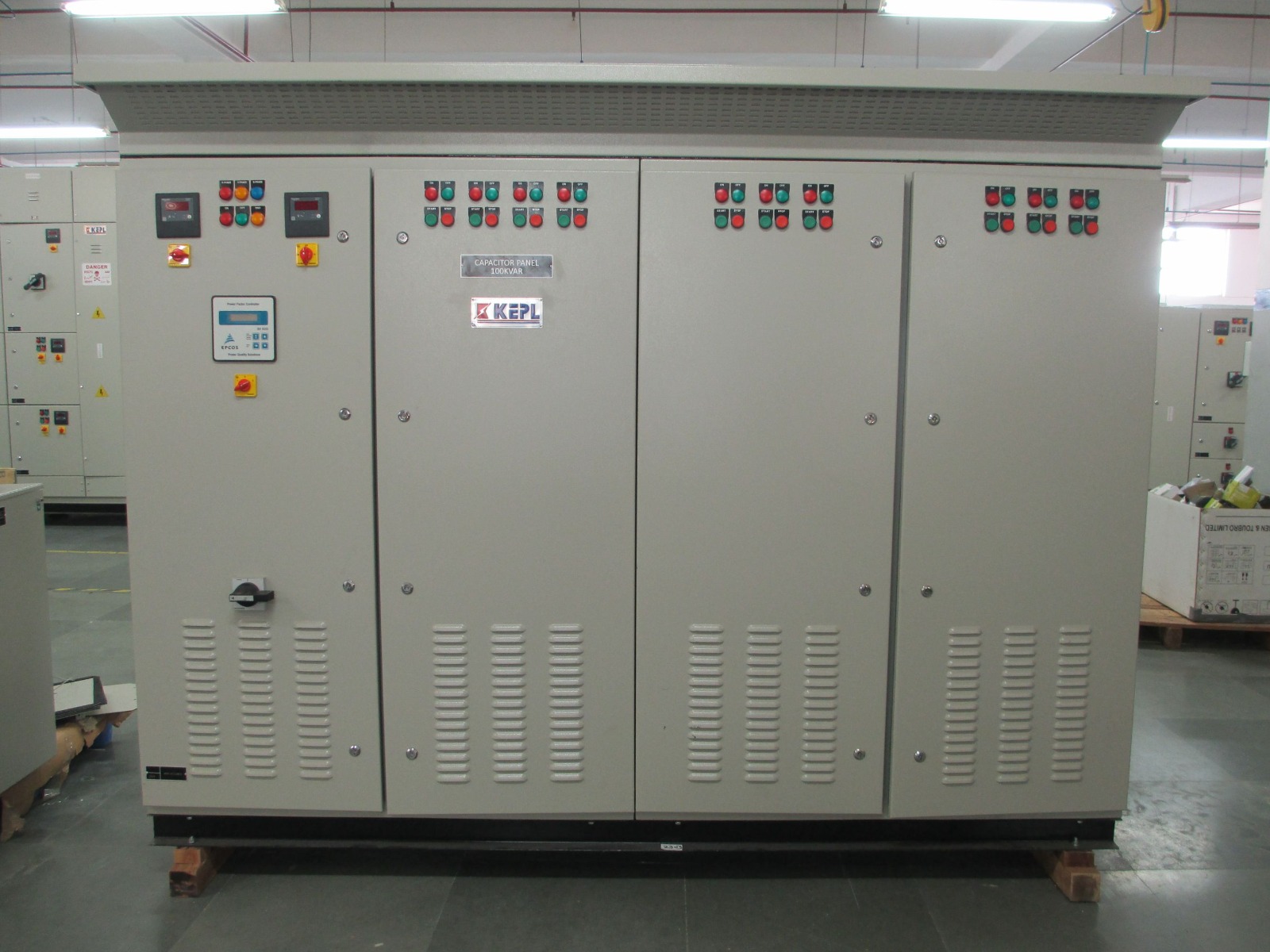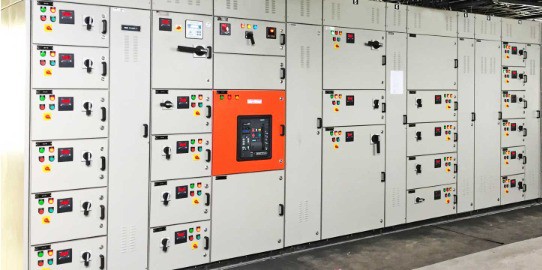Role of Electrical Panels in Keeping Your Factory Safe
As a factory owner, ensuring the safety of your workers and equipment should be a top priority. One of the most critical components of your factory’s electrical system is the electrical panel.
Electrical panels play a crucial role in distributing electricity throughout your facility, controlling the flow of power, and protecting your equipment and workers from electrical accidents.
In this article, we’ll take a closer look at the role of electrical panels in keeping your factory safe. We’ll explore the different types of electrical panels, their functions, and the importance of regular maintenance to ensure optimal performance.
Whether you’re a seasoned factory owner or just starting in the industry, understanding the importance of electrical panels is essential for maintaining a safe and efficient workplace. So, let’s dive in and explore the world of electrical panels and their role in keeping your factory safe!
Importance of Electrical Panels in Factories
Electrical panels are the backbone of any factory’s electrical system. They are responsible for distributing electricity throughout the facility, ensuring that all equipment receives the power it needs to operate. Electrical panels also help control the flow of electricity, preventing power surges, and other electrical accidents that can cause damage to equipment or harm employees.
A properly designed and installed electrical panel can make a significant difference to the safety of your factory. For example, an electrical panel with circuit breakers can help prevent electrical fires by shutting off the power in the event of a fault. Electrical panels can also help prevent electrical shocks by isolating electrical circuits and ensuring that only qualified personnel can access them.
The importance of electrical panels in factories cannot be overstated. Without them, it would be impossible to distribute electricity safely and efficiently throughout the facility. Investing in high-quality electrical panels and ensuring that they are properly installed and maintained is essential for maintaining a safe and productive workplace.
Types of Electrical Panels
There are several types of electrical panels that are commonly used in factories. Each type of electrical panel has its own unique features and functions, and choosing the right one for your facility is essential for ensuring optimal performance and safety.
The most common types of electrical panels include:
Main Service Panels: These panels are responsible for distributing power from the utility company to your factory. They typically include a main circuit breaker that can shut off power to the entire facility in the event of an emergency.
Subpanels: Subpanels are smaller electrical panels that are connected to the main service panel. They are responsible for distributing power to specific areas of the factory and are often used to improve the efficiency of the electrical system.
Distribution Panels: Distribution panels are designed to distribute power to specific pieces of equipment or machinery. They are often used in larger factories where there are multiple pieces of equipment that require power.
Motor Control Panels: Motor control panels are used to control the operation of electric motors. They typically include motor starters, overload relays, and other components that are essential for safe and efficient motor operation.
Choosing the right type of electrical panel for your factory depends on several factors, including the size of your facility, the type of equipment you use, and your specific electrical needs. Working with a qualified electrician or electrical engineer can help ensure that you choose the right type of electrical panel for your facility.
Upgrading Your Electrical Panels
If your factory has an older electrical system, upgrading your electrical panels can provide several benefits. Newer electrical panels are often more efficient and reliable than older models, which can help reduce your energy costs and improve the safety of your facility.
Upgrading your electrical panels can also help ensure that your factory meets current electrical codes and regulations. Electrical codes are updated regularly to reflect changes in technology and safety standards, and failing to comply with these codes can result in fines and other penalties.
If you’re considering upgrading your electrical panels, it’s essential to work with a qualified electrical engineer, electrical consultant or a good panel manufacturer. They can help you determine the best type of electrical panel for your facility, ensure that the installation is done correctly, and provide ongoing maintenance and support to ensure optimal performance.
Signs of Electrical Panel Problems
It’s essential to be aware of the signs of electrical panel problems so that you can address them before they become a safety hazard. Some of the most common signs of electrical panel problems include:
- Flickering or dimming lights
- Circuit breakers that trip frequently
- Burning smells or unusual odours coming from the electrical panel
- Electrical outlets that are warm to the touch
- Buzzing or humming sounds coming from the electrical panel
If you notice any of these signs, it’s essential to have your electrical system inspected by a qualified electrician. Ignoring electrical panel problems can lead to electrical fires, equipment damage, and injuries to employees.
Common Electrical Panel Problems
Electrical panels are prone to several common problems that can affect their performance and safety. Some of the most common electrical panel problems include:
- Overloaded circuits: Overloaded circuits occur when too many devices are connected to a single circuit. This can cause the circuit to trip frequently and can lead to electrical fires.
- Loose connections: Loose connections can cause arcing, which can lead to electrical fires and equipment damage.
- Corrosion: Corrosion can cause connections to become loose or can damage electrical components, leading to equipment failure or electrical fires.
- Outdated components: Outdated components can fail to meet current electrical codes and safety standards, which can lead to fines and other penalties.
It’s essential to have your electrical panels inspected regularly to identify and address these common electrical panel problems.
Regular maintenance can help prevent these problems from occurring in the first place and can ensure that your electrical system remains safe and efficient.
Electrical Panel Maintenance Tips
Proper maintenance is essential for ensuring the safety and efficiency of your electrical panels. Here are some tips for maintaining your electrical panels:
- Keep the area around your electrical panels clear of debris and other materials that could interfere with their operation.
- Regularly inspect your electrical panels for signs of wear or damage, such as loose connections or corrosion.
- Schedule regular maintenance with a qualified electrician to ensure that your electrical panels are operating at peak performance.
- Keep detailed records of all maintenance and repairs performed on your electrical panels.
- Train your employees on how to safely operate electrical panels and what to do in the event of an emergency.
By following these electrical panel maintenance tips, you can help ensure that your electrical system remains safe and efficient and that your factory continues to operate at peak performance.
Benefits of Regular Electrical Panel Maintenance
Regular electrical panel maintenance provides several benefits, including:
- Improved safety: Regular maintenance can help identify and address potential safety hazards before they become a problem.
- Increased efficiency: Properly maintained electrical panels operate more efficiently, which can help reduce your energy costs and improve the performance of your equipment.
- Fewer breakdowns: Regular maintenance can help prevent breakdowns and equipment failures, which can save you time and money in the long run.
- Longer lifespan: Proper maintenance can extend the lifespan of your electrical panels, reducing the need for costly replacements.
By investing in regular electrical panel maintenance, you can help ensure the safety and efficiency of your factory, reduce your energy costs, and prolong the lifespan of your electrical panels.
Conclusion
Electrical panels are a critical component of any factory’s electrical system. They play a crucial role in distributing electricity throughout the facility, controlling the flow of power, and protecting your equipment and workers from electrical accidents.
Understanding the importance of electrical panels and investing in regular maintenance is essential for maintaining a safe and efficient workplace. By choosing the right type of electrical panel, upgrading your electrical panels when necessary, and working with a qualified electrician or electrical engineer, you can help ensure that your factory’s electrical system remains safe and efficient for years to come.







